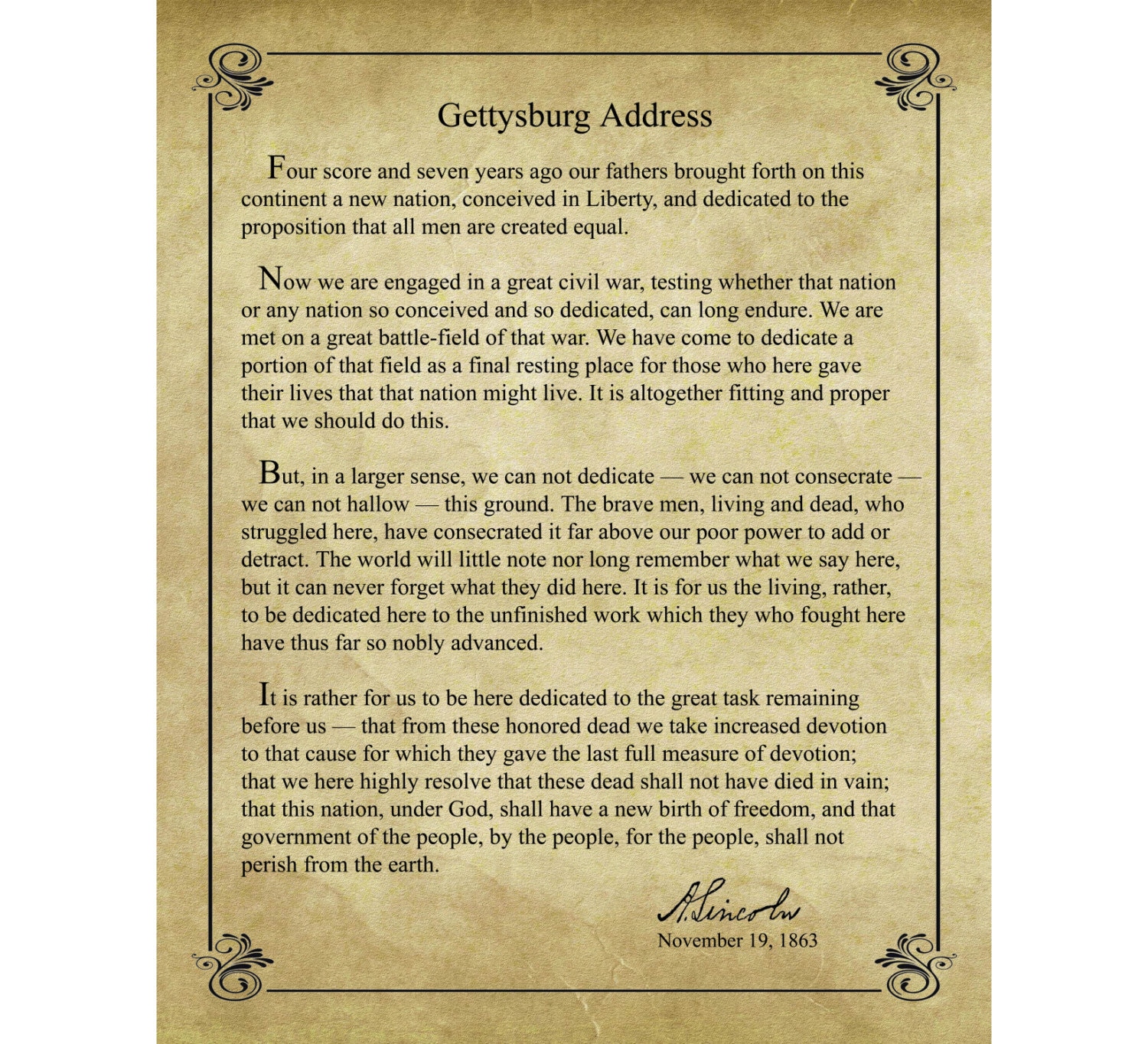
It is altogether fitting and proper that we should do this.īut, in a larger sense, we can not dedicate - we can not consecrate - we can not hallow - this ground. We have come to dedicate a portion of that field, as a final resting place for those who here gave their lives that that nation might live.

We are met on a great battle-field of that war. Now we are engaged in a great civil war, testing whether that nation, or any nation so conceived and dedicated, can long endure. Here it is:įour score and seven years ago our fathers brought forth on this continent, a new nation, conceived in Liberty, and dedicated to the proposition that all men are created equal. The Gettysburg Address is now recognized as one of Lincoln’s greatest speeches and as one of the most famous speeches in U.S. centennial in 1876, when its significance was reconsidered in light of the war’s outcome and in the larger context of the young country’s history. Lincoln’s speech did not garner much attention during his lifetime in many ways, it was forgotten and lost to popular memory until the U.S. The following day, Everett wrote to Lincoln: “I should be glad, if I could flatter myself that I came as near to the central idea of the occasion, in two hours, as you did in two minutes.” In about 260 words, beginning with the famous phrase, “Four score and seven years ago,” Lincoln honored the Union dead and reminded the listeners of the purpose of the soldier’s sacrifice: equality, freedom, and national unity. Everett spoke for two hours, from memory, before Lincoln took the podium. Invited to give a “few appropriate remarks,” Lincoln was not the featured speaker at the dedication Edward Everett, a famous orator and former politician and educator, was.

The Gettysburg Address is the speech delivered by Abraham Lincoln at the November 19, 1863, dedication of Soldier’s National Cemetery, for Union soldiers killed at the Battle of Gettysburg.


 0 kommentar(er)
0 kommentar(er)
